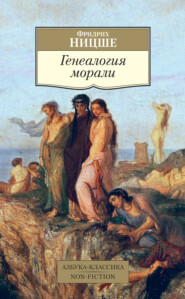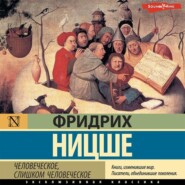По всем вопросам обращайтесь на: info@litportal.ru
(©) 2003-2024.
✖
We Philologists
Настройки чтения
Размер шрифта
Высота строк
Поля
In Wolf's estimation, a man has reached the highest point of historical research when he is able to take a wide and general view of the whole and of the profoundly conceived distinctions in the developments in art and the different styles of art. Wolf acknowledges, however, that Winckelmann was lacking in the more common talent of philological criticism, or else he could not use it properly: "A rare mixture of a cool head and a minute and restless solicitude for hundreds of things which, insignificant in themselves, were combined in his case with a fire that swallowed up those little things, and with a gift of divination which is a vexation and an annoyance to the uninitiated."
60
Wolf draws our attention to the fact that antiquity was acquainted only with theories of oratory and poetry which facilitated production, τἑχναι and artes that formed real orators and poets, "while at the present day we shall soon have theories upon which it would be as impossible to build up a speech or a poem as it would be to form a thunderstorm upon a brontological treatise."
61
Wolf's judgment on the amateurs of philological knowledge is noteworthy: "If they found themselves provided by nature with a mind corresponding to that of the ancients, or if they were capable of adapting themselves to other points of view and other circumstances of life, then, with even a nodding acquaintance with the best writers, they certainly acquired more from those vigorous natures, those splendid examples of thinking and acting, than most of those did who during their whole life merely offered themselves to them as interpreters."
62
Says Wolf again · "In the end, only those few ought to attain really complete knowledge who are born with artistic talent and furnished with scholarship, and who make use of the best opportunities of securing, both theoretically and practically, the necessary technical knowledge" True!
63
Instead of forming our students on the Latin models I recommend the Greek, especially Demosthenes · simplicity! This may be seen by a reference to Leopardi, who is perhaps the greatest stylist of the century.
64
"Classical education" · what do people see in it? Something that is useless beyond rendering a period of military service unnecessary and securing a degree![5 - Students who pass certain examinations need only serve one year in the German Army instead of the usual two or three – Tr.]
65
When I observe how all countries are now promoting the advancement of classical literature I say to myself, "How harmless it must be!" and then, "How useful it must be!" It brings these countries the reputation of promoting "free culture." In order that this "freedom" may be rightly estimated, just look at the philologists!
66
Classical education! Yea, if there were only as much paganism as Goethe found and glorified in Winckelmann, even that would not be much. Now, however, that the lying Christendom of our time has taken hold of it, the thing becomes overpowering, and I cannot help expressing my disgust on the point – People firmly believe in witchcraft where this "classical education" is concerned. They, however, who possess the greatest knowledge of antiquity should likewise possess the greatest amount of culture, viz., our philologists; but what is classical about them?
67
Classical philology is the basis of the most shallow rationalism always having been dishonestly applied, it has gradually become quite ineffective. Its effect is one more illusion of the modern man. Philologists are nothing but a guild of sky-pilots who are not known as such · this is why the State takes an interest in them. The utility of classical education is completely used up, whilst, for example, the history of Christianity still shows its power.
68
Philologists, when discussing their science, never get down to the root of the subject. they never set forth philology itself as a problem. Bad conscience? or merely thoughtlessness?
69
We learn nothing from what philologists say about philology: it is all mere tittle-tattle – for example, Jahn's[6 - Otto Jahn (1813-69), who is probably best remembered in philological circles by his edition of Juvenal. – Tr.] "The Meaning and Place of the Study of Antiquity in Germany." There is no feeling for what should be protected and defended: thus speak people who have not even thought of the possibility that any one could attack them.
70
Philologists are people who exploit the vaguely-felt dissatisfaction of modern man, and his desire for "something better," in order that they may earn their bread and butter.
I know them – I myself am one of them.
71
Our philologists stand in the same relation to true educators as the medicine-men of the wild Indians do to true physicians What astonishment will be felt by a later age!
72
What they lack is a real taste for the strong and powerful characteristics of the ancients. They turn into mere panegyrists, and thus become ridiculous.
73
They have forgotten how to address other men; and, as they cannot speak to the older people, they cannot do so to the young.
74
When we bring the Greeks to the knowledge of our young students, we are treating the latter as if they were well-informed and matured men. What, indeed, is there about the Greeks and their ways which is suitable for the young? In the end we shall find that we can do nothing for them beyond giving them isolated details. Are these observations for young people? What we actually do, however, is to introduce our young scholars to the collective wisdom of antiquity. Or do we not? The reading of the ancients is emphasised in this way.
My belief is that we are forced to concern ourselves with antiquity at a wrong period of our lives. At the end of the twenties its meaning begins to dawn on one.
75
There is something disrespectful about the way in which we make our young students known to the ancients: what is worse, it is unpedagogical; or what can result from a mere acquaintance with things which a youth cannot consciously esteem! Perhaps he must learn to "believe" and this is why I object to it.
76
There are matters regarding which antiquity instructs us, and about which I should hardly care to express myself publicly.
77
All the difficulties of historical study to be elucidated by great examples.
Why our young students are not suited to the Greeks.
The consequences of philology.
Arrogant expectation.
Culture-philistinism.
Superficiality.
Too high an esteem for reading and writing.
Estrangement from the nation and its needs.
The philologists themselves, the historians, philosophers, and jurists all end in smoke.
Our young students should be brought into contact with real sciences.
Likewise with real art.
In consequence, when they grew older, a desire for real history would be shown.

















